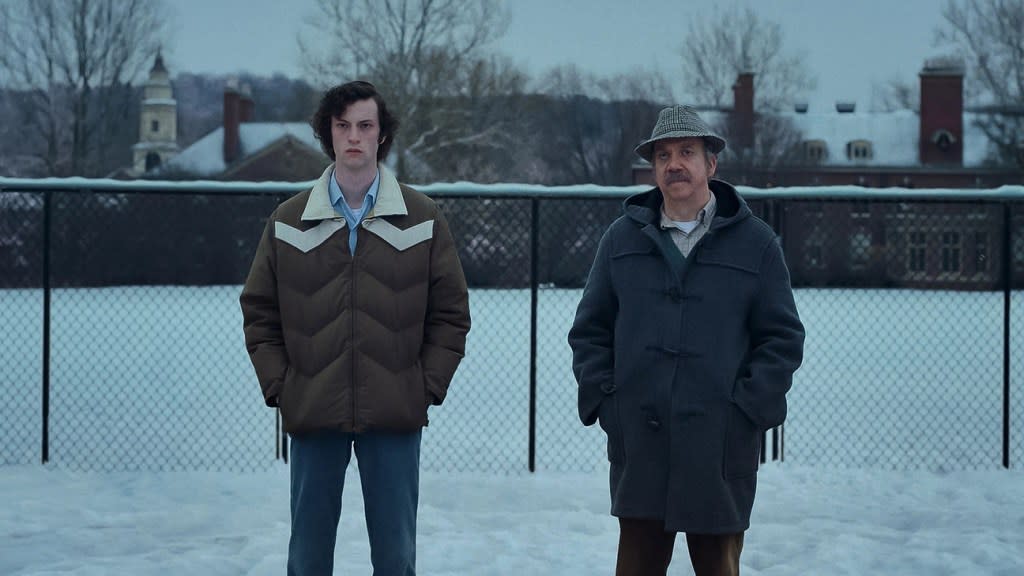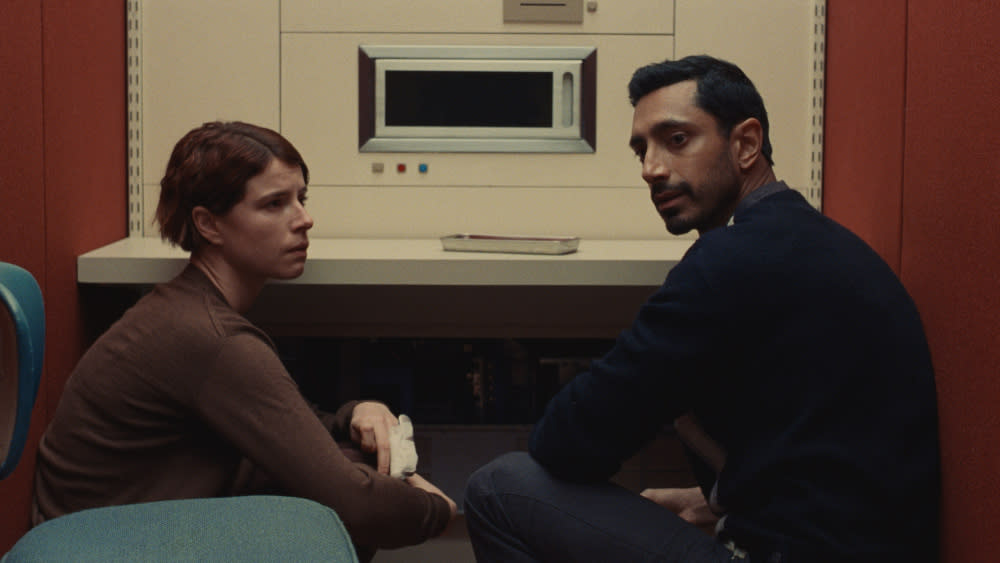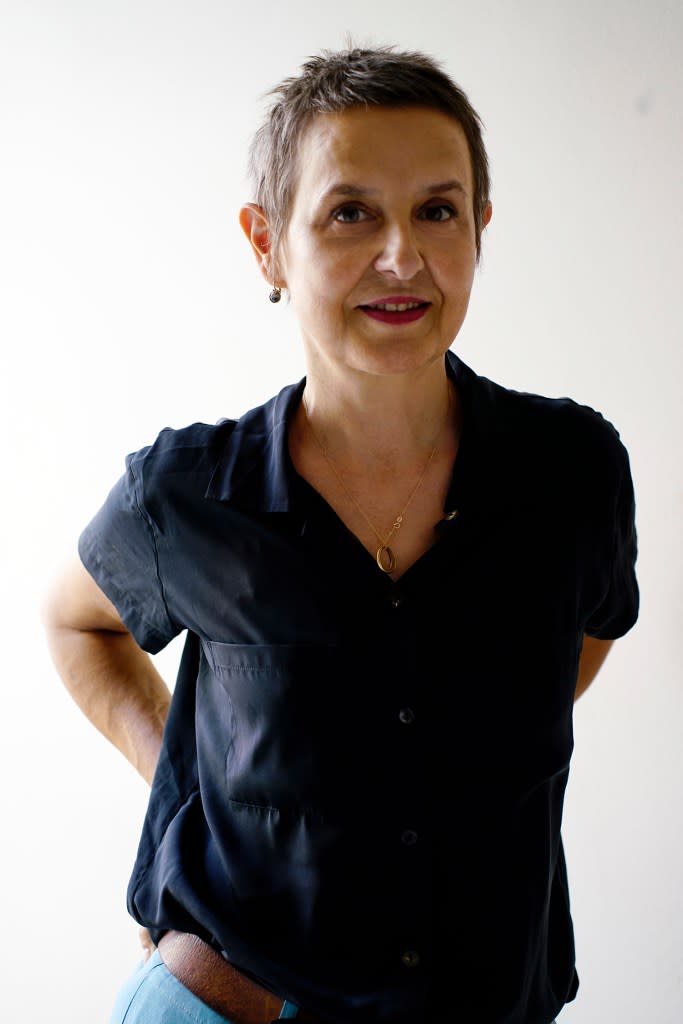How the Thessaloniki Film Festival Is Adapting to Remain a ‘One-of-a-Kind Experience’ for Greek Audiences and an ‘Essential Actor’ for the Local Industry

When the Thessaloniki Intl. Film Festival kicks off its 64th edition on Nov. 2, the organizers will unveil a host of changes while renewing their commitment to serving audiences at one of Europe’s longest-running film events — all at a time of almost unprecedented uncertainty over the future of cinema and even the very purpose of festivals themselves.
With a sister documentary festival held each March and a year-round program of workshops, screenings, special events and other education and outreach initiatives, Thessaloniki has established itself as a hub to “exchange ideas, train, reflect and celebrate cinema with the public,” says festival general director Elise Jalladeau.
More from Variety
It’s also uniquely positioned to adapt to a rapidly changing industry.
“We operate in an ecosystem that has changed radically over the past five years and the pace is accelerating,” says Jalladeau, calling the challenges ahead “immense, but also very motivating.” Still, Thessaloniki remains committed to cinema “as a one-of-a-kind experience,” and the festival head says it’s determined to continue its role as “an essential actor in the community, a place for dialogue and a reference point for the entire community.”
The curtain rises on this year’s festival Nov. 2 with Tràn Anh Hùng’s “The Pot au Feu” (retitled “The Taste of Things” ahead of its U.S. release), the Cannes best director prize winner that stars Juliette Binoche and Benoît Magimel as a famous chef and his personal cook and lover whose lush, gastronomy-centered romance unspools in a French château in the late-19th century. It wraps Nov. 12 with Aki Kaurismäki’s minimalist love story “Fallen Leaves,” winner of the Jury Prize at this year’s Cannes Film Festival.

Special guests include Italian screen icon Monica Bellucci, who will be feted with a lifetime achievement award, as well as two-time Academy Award winner Alexander Payne, on hand to present his latest feature, “The Holdovers,” the “Sideways” director’s portrait of a prickly history teacher at an elite New England prep school, played by Paul Giamatti.
Eleven debut or sophomore feature films will vie for the Golden Alexander in the festival’s international competition, among them Dutch-Bosnian director Ena Sendijarević’s Locarno prize-winning colonial satire “Sweet Dreams,” American writer-director-star Joanna Arnow’s Cannes discovery “The Feeling That the Time for Doing Something Has Passed,” and Québécois director Ariane Louis-Seize’s vampire horror-comedy “Humanist Vampire Seeking Consenting Suicidal Person,” which won the best director award after its premiere in the Venice Film Festival’s Venice Days sidebar.
The host country, meanwhile, presents four features from rising Greek talents in the main competition. They include “Animal,” the sophomore feature from Sofia Exarchou, which won best performance honors for lead actress Dimitra Vlagopoulou after its premiere at the Locarno Film Festival, and Christina Ioakeimidi’s coming-of-age drama “Medium,” which bowed in Sarajevo.

Also in competition is the world premiere of “The Last Taxi Driver,” from director Stergios Paschos, whose debut “Afterlov” scooped the Youth Jury Prize for best picture after its 2016 premiere at Locarno’s Cineasti del Presente. Greek director Christos Nikou, meanwhile, competes with his second feature, “Fingernails,” a tender, off-beat, sci-fi romance from Apple TV+ featuring an ensemble cast led by Jessie Buckley, Riz Ahmed and Jeremy Allen White.
In total, Greek directors will present 35 feature-length and 22 short films at this year’s festival, an output that underscores the resilience of a Greek industry that has weathered successive economic shocks in the past decade, as well as the ongoing fallout from the coronavirus pandemic. “Despite the economic crises it has gone through, Greek cinema is today remarkably resilient and dynamic,” says Jalladeau. “We no longer need to introduce the directors of the famous Greek Weird Wave, which flourished from the 2010s, led by Yorgos Lanthimos — a generation that is still as prolific and successful as ever and that comes back to visit us at the festival every year.”
(Greek audiences hoping for their first peek at Lanthimos’ Venice sensation “Poor Things,” however, will have to wait a bit longer for the domestic premiere, with festival organizers and Greek distributor Feelgood Entertainment opting instead for a pair of events in Athens and Thessaloniki in mid-December, closer to January’s theatrical release.)

Thessaloniki is one of seven European fests that this year joined forces to introduce the Smart7 alliance, a knowledge-sharing initiative designed to help the events promote European cinema and develop audiences. It’s part of what Jalladeau describes as a process of “existential reflection” to ensure that film festivals and markets, such as Thessaloniki and its industry arm, Agora, remain relevant despite broader industry uncertainty.
This year the festival unveils an expanded TV strand, Agora Series, after launching a successful pilot program last year, which will feature a host of panels and workshops, as well as big-screen premieres for series including Nima Javidi’s “The Actor,” which won the Grand Prize at Series Mania this year, Oscar nominee Jasmila Žbanič’s Venice-premiering series “I Know Your Soul,” and Greek director Vasilis Kekatos’ “Milky Way,” the first show from the Mediterranean nation to compete at Series Mania, which was recently acquired for global distribution by Fifth Season.
Meanwhile, the festival has beefed up its Meet the Neighbors+ section, introducing new awards and bigger cash prizes to its competitive strand of films from the region, while also broadening the scope of its non-competitive section Survey Expanded. “This is not only an artistic choice, but also a political statement in a region riven by conflicts, wars and crisis, where culture, often shared by all, transcends divisions when it is not a last resort,” says Jalladeau.
That statement takes on added urgency this year, as the war in Ukraine approaches its second anniversary and a bloody new conflict has flared in the Middle East, where Israel launched a punishing assault on Gaza in response to the Oct. 7 terrorist attacks by Hamas.
Amid the grief and loss, however, Jalladeau insists festivals like Thessaloniki can play their own small but vital role. “As hopeless as the situation may seem, under the clouds of fanaticism and hatred, cinema and culture are by far and above all the first aid of our soul and perhaps the only door to establish a sketch of dialogue,” she says.
“Two of the most important sections of our program, Meet the Neighbors+ competition section and Survey Expanded, host films from our wider ‘neighborhood,’ a region that should be regarded as the cradle of luminous civilizations and not as the theater of ferocious bloodshed. Cinema and art are our last chance, and we must seize it.”
The Thessaloniki Intl. Film Festival runs Nov. 2 – 12.
Best of Variety
Awards Season Calendar (2023-2024): Key Dates and Timeline for Oscars, DGA, WGA and More
Oscars Predictions: Adapted Screenplay - Is There Room for 'All of Us Strangers?'
Sign up for Variety’s Newsletter. For the latest news, follow us on Facebook, Twitter, and Instagram.
